Your cart is currently empty!

Transformation and Renewal Through Indigenous Dialogue
- This event has passed.
August 21, 2021 @ 6:00 pm – 8:00 pm CEST
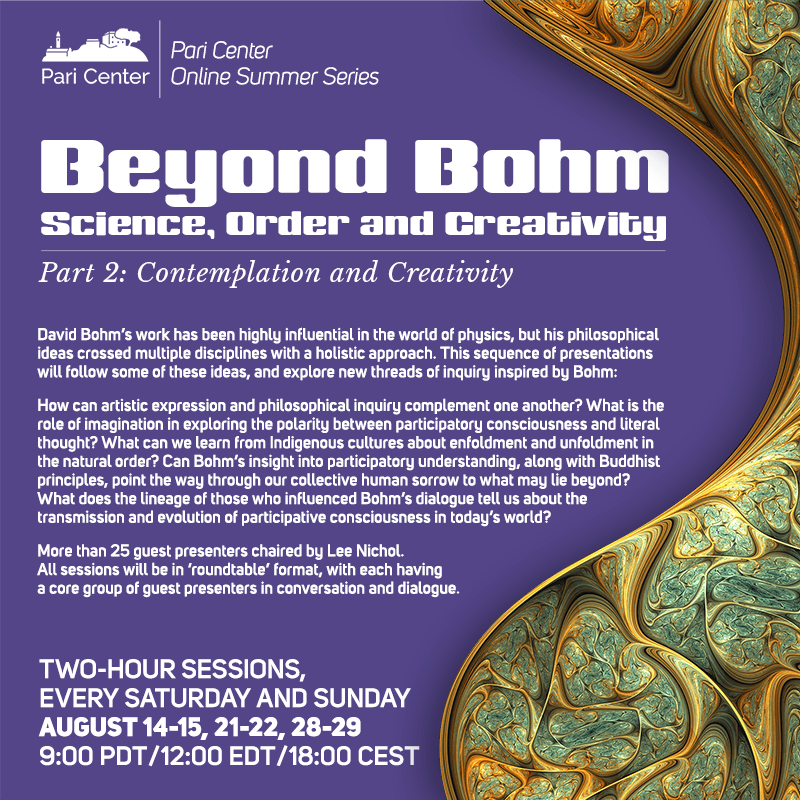
Transformation and Renewal Through Indigenous Dialogue
with David Begay (Navajo), Angelita Valencia Borbon (Yaqui), Greg Cajete (Tewa), Amethyst First Rider (Blackfoot), Rose von Thater Braan-Imai (Tuscarora), Nancy Maryboy (Navajo), Melissa Nelson (Anishanaabe/Metis), Lee Nichol.
Facilitated by Leroy Little Bear (Blackfoot)
Saturday August 21, 2021
9:00 PDT | 12:00 EDT | 17:00 BST | 18:00 CEST
2-hour session
If you are unable to attend the live session, the recording will be available.
Reaching back through recorded history, into the multivalent worlds of oral tradition, Indigenous people have long indicated knowledge of how the world comes into being, and how humans can live in accord with this perpetual ”coming into being.” This knowledge is expressed through origin stories, ceremonial activity, ritual enactment and renewal, paradoxical language play, and trickster humor – it permeates all aspects of daily life in traditional cultures.
When Leroy Little Bear first read David Bohm’s Wholeness and the Implicate Order, he recognized many reflections of his traditional Blackfoot worldview, albeit expressed in different language. David Peat, a friend of both Little Bear and Bohm, arranged for the two of them to meet. There was a natural affinity, and all three concurred that dialogue between Indigenous and Western worldviews was in order.
This program marks a new phase in that ongoing dialogue process, which is not strictly “Bohmian,” nor strictly traditional. It is a new form, ever-evolving, now finding its place in the world of Zoom.
Among the potential topics: Can shared cultural meaning bridge the polarity between analytic thought and holistic perception? How does our understanding of whole and part affect our action in daily life? Is it possible to step beyond theory to inhabit the implicate orders of the natural world and the living land? What part do language, art, creativity, and silence play in such investigations? What role do tacit cultural infrastructures play in forming the “worlds” we inhabit?
As Little Bear says, “We may have these starting points, but where we will end up, nobody knows. The best part of dialogue is the opportunity to shed our tacit infrastructures. Prepare yourselves accordingly!”
To see the Full Beyond Bohm Series

Leroy Little Bear, PhD. Blackfoot Native—Professor Emeritus University of Lethbridge, Canada.
Leroy Little Bear was born and raised on the Blood Indian Reserve (Kainai First Nation), approximately 70 km west of Lethbridge, Alberta. One of the first Native students to complete a program of study at the University of Lethbridge, Little Bear graduated with a Bachelor of Arts Degree in 1971. He continued his education at the College of Law, University of Utah, in Salt Lake City, completing a Juris Doctor Degree in 1975.
Following his graduation, Little Bear returned to his alma mater as a founding member of Canada’s first Native American Studies Department. He remained at the University of Lethbridge as a researcher, faculty member and department chair until his official retirement in 1997.
In recent years Little Bear has continued his influential work as an advocate for First Nations education. From January 1998 to June 1999 he served as Director of the Harvard University Native American Program. Upon his return to Canada, he was instrumental in the creation of a Bachelor of Management in First Nations Governance at the University of Lethbridge—the only program of its kind in the country.
In the spring of 2003, Little Bear was awarded the prestigious National Aboriginal Achievement Award for Education, the highest honour bestowed by Canada’s First Nations community. Little Bear is the recipient of honorary doctorates from the University of Lethbridge and the University of Northern British Columbia. Along with his wife, Amethyst First Rider, Little Bear brought about the historic Buffalo Treaty between First Nations on both sides of the USA-Canada border in 2014. Little Bear was inducted into the Alberta Order Excellence and the Order of Canada in 2016 and 2019 respectively.
After a lifetime of educational service, Little Bear remains a dedicated and dynamic teacher and mentor to students and faculty at the University of Lethbridge. He continues to pursue new research interests including North American Indian science and Western physics, and the exploration of Blackfoot knowledge through songs, stories and landscape.
While his educational achievements are remarkable, Little Bear’s contribution to the First Nations community extends well beyond the classroom. He has served as a consultant to local and national organizations including the Blood Tribe, Indian Association of Alberta and the Assembly of First Nations of Canada. His notable reputation has also earned him a place on numerous government commissions and boards including the Task Force on the Criminal Justice and Its Impact on the Indian and Metis Peoples of Alberta (1990-91). Little Bear’s legal advice is widely sought on such significant issues as land claims, treaties, and hunting and fishing rights.
Dr Little Bear is the co-author of several books on self-government and Aboriginal rights, including Pathways to Self Determination, Quest For Justice, and Governments in Conflict. His credits also include a variety of influential articles such as, ‘A concept of Native Title,’ which was cited in a Canadian Supreme Court decision.
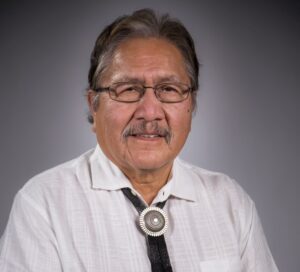
David Begay, Ph.D. is currently Associate Research Professor with the University of New Mexico, Albuquerque, in the College of Pharmacy, Community Environmental Health Program, working with several federally-funded health research projects. David is former adjunct faculty at Northern Arizona University, Flagstaff, in the Department of Physics and Astronomy. He is also a former professor and academic dean for Dine’ (Navajo Nation) College. He is currently VP for the Indigenous Education Institute, Friday Habor, WA. He has worked with National Science Foundation and other federal projects, including NASA, for 20 plus years, as well as JPL (Jet Propulsion Laboratory) and Goddard Space Flight Center on Heliophysics educational outreach. David is considered a tribal elder and provides cultural consultant services to many organizations and corporations both in the United States and internationally. He is raised with the deep cultural knowledge, tradition, and language of the Dine’ (Navajo) people. He is a member of the Dine’ Hatallii (Spiritual and Herbal Healers) Association. David is a disabled combat Vietnam veteran. He is also currently a member of the Navajo Nation Human Research Review Board (IRB) appointed by the Navajo Nation Council.
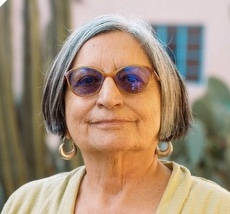
Angelita Valencia Borbón (Yaqui) I am living my life paying attention, observing and listening, looking for patterns and feeling resonance. I have a whole world of mentors teaching me what I know and remember. Some say I am like a rez dog with a bone: persistent, relentless and focused. My Grandfather told me I am responsible for helping the Sonoran Desert and Los Yaquis survive. My Father told me to remember and practice how we think so our People do not forget, and so others may awaken their Conciencia/Knowing that we are all connected through our relationship with our Mother Earth, and the Laws of Nature.

Gregory Cajete is a Native American educator whose work is dedicated to honoring the foundations of Indigenous knowledge in education. Dr. Cajete is a Tewa Indian from Santa Clara Pueblo, New Mexico.
Dr. Cajete is a practicing ceramic, pastel and metal artist. He is extensively involved with art and its application to education. He is also a scholar of herbalism and holistic health. Dr. Cajete also designs culturally-responsive curricula geared to the special needs and learning styles of Native American students.
He worked at the Institute of American Indian Arts in Santa Fe, New Mexico for 21 years. While at the Institute, he served as Dean of the Center for Research and Cultural Exchange, Chair of Native American Studies and Professor of Ethno- Science. He is the former Director of Native American Studies (18 years) and is Professor Emeritus in the Division of Language, Literacy and Socio Cultural Studies in the College of Education at the University of New Mexico. In addition, he has lectured at colleges and universities in the U.S., Canada, Mexico, New Zealand, Italy, Japan, Russia, Taiwan, Ecuador, Peru, Bolivia, England, France and Germany.
Dr. Cajete has authored 10 books: “Look to the Mountain: An Ecology of Indigenous Education,” (Kivaki Press, 1994); “Ignite the Sparkle: An Indigenous Science Education Curriculum Model”, (Kivaki Press, 1999); “Spirit of the Game: Indigenous Wellsprings (2004),” “A People’s Ecology: Explorations in Sustainable Living,” and “Native Science: Natural Laws of Interdependence” (Clear Light Publishers, 1999 and 2000). “Critical Neurophilosophy and Indigenous Wisdom,” Don Jacobs (Four Arrows), Gregory Cajete and Jongmin Lee) Sense Publishers, 2010. “Indigenous Community: Teachings of the Seventh Fire,” (Living Justice Press, 2015). His most recent books are edited volumes entitled: “Native Minds Rising” and “Sacred Journeys” (John Charlton Publications, 2020). Dr. Cajete also has chapters in 36 other books along with numerous articles and over 350 national and international presentations.
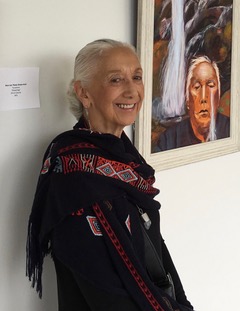
Rose von Thater Braan-Imai (Tuscarora) is a self-taught artist. Her surrealist figurations explore the exquisiteness of our connections to the Earth expressing the sensuality and intimacy of the natural world as experienced through the human body. She works primarily in oils enjoying the depth and range of feeling she finds in their texture and in the way they carry light. She is the Founding Director of The Native American Academy, leading creative projects (Sculpture Garden of Native Science and Learning) and transcultural dialogues between Indigenous and Western worldviews to forward the potential for new knowledge using the lens of the Native paradigm, indigenous learning processes and Native science.
From 1989 to 2000 she served as the Director of Education at University of California (UC) Berkeley’s Center for Particle Astrophysics, presenting at national and international forums, including the National Academy of Sciences, the Banff Centre, Goddard Space Flight Center and The National Science Foundation. Prior to 1989, Rose worked in theater (the American Conservatory Theater), television (KQED-TV), and as Liason and Assistant to writer/critic/producer Ralph J. Gleason, co-founder of Rolling Stone magazine before heading her own production company.
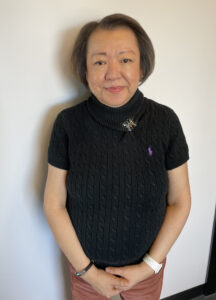
Amethyst First Rider is a member of the Kainai Nation, Blackfoot Confederacy, Alberta, Canada and married to Leroy Little Bear. She is a leader in the performing arts community for more that 20 years, producing and directing plays depicting Aboriginal stories and culture. Her experience in the arts has included dance productions, consulting for the University of California, Berkeley’s planetarium, as well as narration and production in the National Film Board’s documentary: Kainayssini Imanistaiswa, The People Go On. She co-conceived Iniskim an immersive puppet lantern performance celebrating the reintegration of Bison into the natural ecosystem of Banff National Park. She is central to the development and success of The Buffalo: A Treaty of Cooperation, Renewal and Restoration signed by over 30 First Nations and Tribes in Canada and the USA. It is the biggest modern Treaty amongst First Nations. Its purpose is to “one again welcome the Buffalo to live among us” and it recognizes “Buffalo as a wild free-ranging animal and as an important of the ecological ecosystem.” She is also a founding-advisor to the Kainai Ecosystem Protection Association.
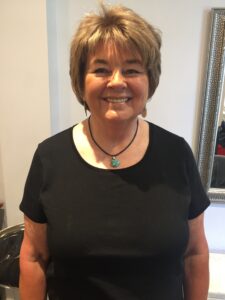
Dr. Nancy C. Maryboy is the President and Executive Director of the Indigenous Education Institute, (IEI) located in the San Juan Islands, in Washington, and on the Navajo Nation. IEI is an all Indigenous institution with a mission to preserve, protect and apply traditional Indigenous knowledge in contemporary settings. She is an Affiliate Professor at the University of Washington, in the School of Environmental Sciences and Forestry. She has been a Principal Investigator for National Science Foundation funded projects including the Cosmic Serpent, Native Universe and Co-PI for additional NSF projects. Dr. Maryboy is a PI for NASA’s Space Science Education Consortium, and has worked with both Goddard Space Flight Center and the Jet Propulsion Laboratory. She works with the University of New Mexico Superfund program. She has written several books and numerous articles on collaboration between Indigenous communities and science centers, with a focus on Navajo astronomy. She works with Indigenous schools around the world. She was awarded a Lifetime Achievement Award from the Association of Tribal Archives, Libraries and Museums. Dr. Maryboy is Navajo and Cherokee. She comes from a family of traditional and medical healers, on the Navajo Nation and in the Pacific Northwest.
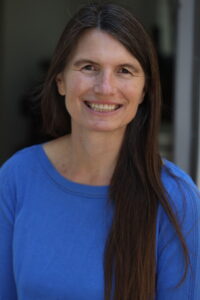
Melissa K. Nelson is an ecologist and Indigenous scholar-activist. She earned her Ph.D. in ecology at the University of California, Davis. Formerly a professor of American Indian Studies at San Francisco State University, she now teaches at Arizona State University in the School of Sustainability, Global Futures Laboratory. From 1993 to 2021, she served as the founding executive director and CEO of the Cultural Conservancy. She now serves as their president emerita. Melissa is the Bundle Holder for the Native American Academy. She is a contributor and co-editor of Traditional Ecological Knowledge: Learning from Indigenous Practices for Environmental Sustainability published by Cambridge University Press in 2018. She is also a contributor and the editor of Original Instructions: Indigenous Teachings for a Sustainable Future (2008). She is Anishinaabe/Métis/Norwegian and a member of the Turtle Mountain Band of Chippewa Indians.
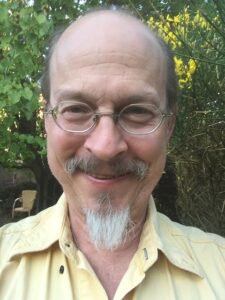
Lee Nichol, Bohm collaborator, editor, educator
Lee Nichol is the editor of David Bohm’s On Dialogue; On Creativity; and The Essential David Bohm. From 1980-1992 he collaborated with Bohm on various aspects of dialogue, consciousness, and education.
He has been on the faculty of the Arthur Morgan School in Celo, NC; of the Oak Grove School in Ojai, CA; of the Nyingma Institute in Berkeley, CA; and of Denver University in Denver, CO.
Lee is currently at work on a new book – Entering Bohm’s Holoflux – to be released in July 2021 by Pari Publishing.
